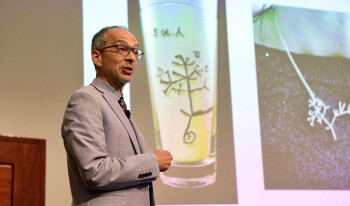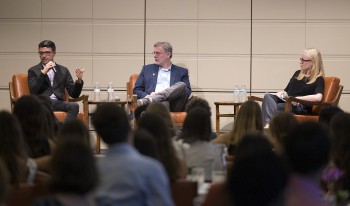October 11, 2022
A Voice of Trust and Reason
Public health expert Katya Calvo Corado ’01 researches COVID-19
Her face may not be as familiar as Anthony Fauci’s, but infectious disease specialist Katya Calvo Corado ’01 has helped countless Americans better understand the pandemic.
In fluent Spanish.
October 3, 2022
Students lead sustainable campus projects
Whether it’s planting a vibrant native plant garden, devising a way to recycle disposable face masks, or tracking CMC’s progress toward carbon neutrality, four CMC students are making a tangible and sustainable difference on campus.
CMC’s commitment to reducing climate change through campus-wide efforts is personified by these four environmentally aware student leaders who have earned 2022 Sustainability Fund grants.
CMC Names Founding Chair for Integrated Sciences
Dr. Ran (“Ron”) Libeskind-Hadas will lead a next-generation interdisciplinary curriculum for the College
Dr. Ran (“Ron”) Libeskind-Hadas has joined Claremont McKenna College as Founding Chair for its new Department of Integrated Sciences.
September 26, 2022







